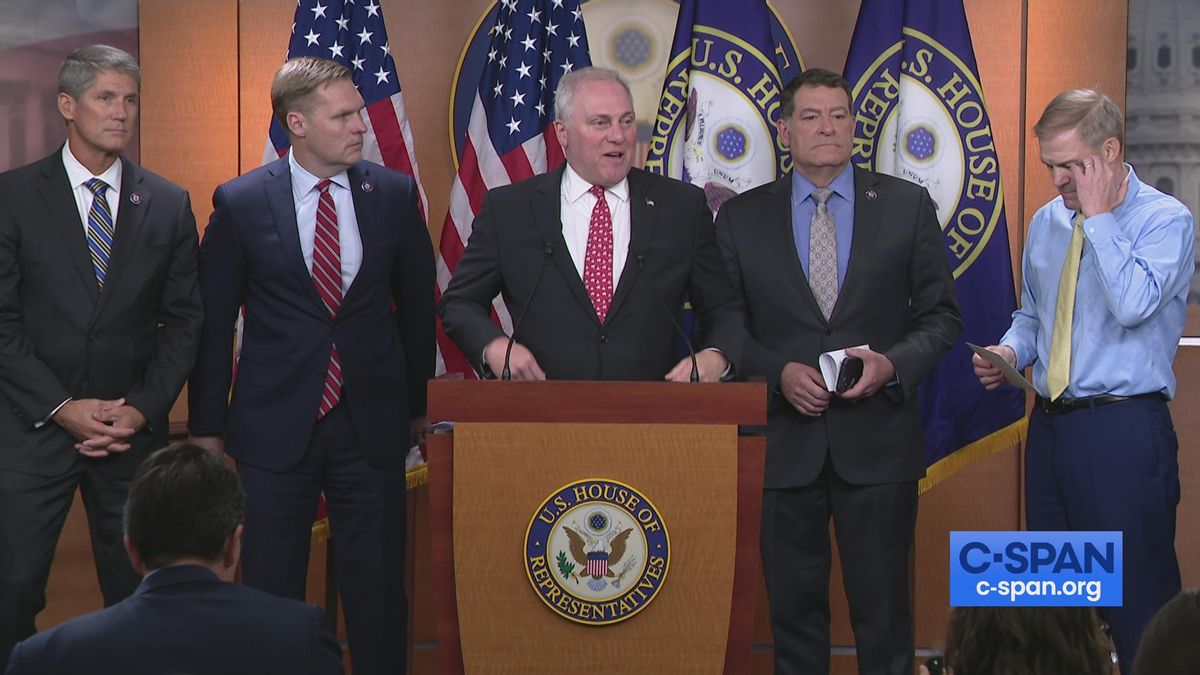JAKARTA - The United States House of Representatives (DPR) will accelerate next week's vote on legislation that will give ByteDance six months from China to escape from the short video app TikTok or face a ban in the US after a committee unanimously approved the move on Thursday 7 March.
The 50-0 vote of the Energy and Trade Committee represents the most significant momentum for the US crackdown on TikTok, which has had about 170 million US users since President Donald Trump failed to ban the app in 2020.
Previous attempts have stalled over the past year due to heavy lobbying by the company.
Chairman of the House of Representatives Steve Scallise told X that House members will vote next week "to force TikTok to cut ties with the Chinese Communist Party."
TikTok, which claims to have never and will not share US user data with the Chinese government, argues that the bill will lead to a ban and it's unclear whether China will approve any sale, or that TikTok could be released in six months.
"This legislation has predetermined results: a total ban on TikTok in the United States," the company said after the vote. "The government is trying to revoke 170 million constitutional rights of Americans to express freely. It will damage millions of businesses, reject artists from spectators, and destroy the livelihoods of creators across the country."
Prior to the vote, members of the House of Representatives received a closed briefing session classified as saying national security concerns over China's ownership of TikTok.
The Democratic's most senior committee member Frank Pallone said on Thursday his hope was that the law "will force the separation of TikTok and American citizens will be able to continue using this platform and other similar platforms without the risk that they are operated and controlled by our enemies."
Members of the House of Representatives, Mike Gallagher, chairman of the Chinese Special Committee in the US House of Representatives, and US House of Representatives Member, King Krishna Moorthi, who is the most senior Democratic Party member on the committee, introduced legislation to address national security concerns raised by Chinese ownership of the app.
"TikTok can continue to operate and people can do whatever they want in it as long as there is such separation," Gallagher said. He also urged US ByteDance investors to support sales. "This is not a ban - imagine this as a surgical operation designed to remove tumors and thus save patients in the process."
TikTok users flooded Capitol Hill with phone calls encouraging DPR members not to support the move after the app warned users that the app could be banned in the US.
"Why do Congressmen complain about hearing from their constituents? With respect, isn't that their job?", the company told X.
SEE ALSO:
When asked if the bill could affect Tencent's US operation of Tencent's WeChat, which Trump is trying to ban in 2020, Gallagher said he would not speculate but said "in the future we can discuss what companies are included" in the bill.
The bill will give ByteDance 165 days to release TikTok; otherwise app stores operated by Apple, Google, and others should not offer TikTok or provide web hosting services for apps controlled by ByteDance.
White House Press Secretary Karine Jean-Pierre, on Wednesday 6 March praised the proposal, saying the administration wanted to "see this bill completed so that it could reach the president's table."
US Commerce Secretary Gina Raimondo told Reuters she supports "a bipartisan comprehensive legislation effort that will allow us to resolve the very real national security threat" posed by foreign applications owned by TikTok but does not support the DPR Bill.
The app is popular and getting legislative approval from the two Houses and Senates in the election year may be difficult. Last month, Democratic President's re-election campaign, Joe Biden joined TikTok.
Democratic Senator Mark Warner, who proposed a separate bill last year to give the White House new powers over TikTok, said he "has some concerns about the constitutionality of the approach that mentions certain corporate names," but would "examine this bill closely."
The new bill is aimed at strengthening the legal authority to tackle TikTok. Trump tried to ban TikTok in 2020 but was blocked by US courts.
A US judge at the end of November also blocked the ban on the first state-level TikTok in Montana, saying it violated the user's right to freedom of speech.
The Committee led by the Department of Finance on Foreign Investment in the United States (CFIUS) in March 2023 demanded that ByteDance sell their TikTok shares or face the possibility that the app was banned, but no action was taken.
The English, Chinese, Japanese, Arabic, and French versions are automatically generated by the AI. So there may still be inaccuracies in translating, please always see Indonesian as our main language. (system supported by DigitalSiber.id)


















